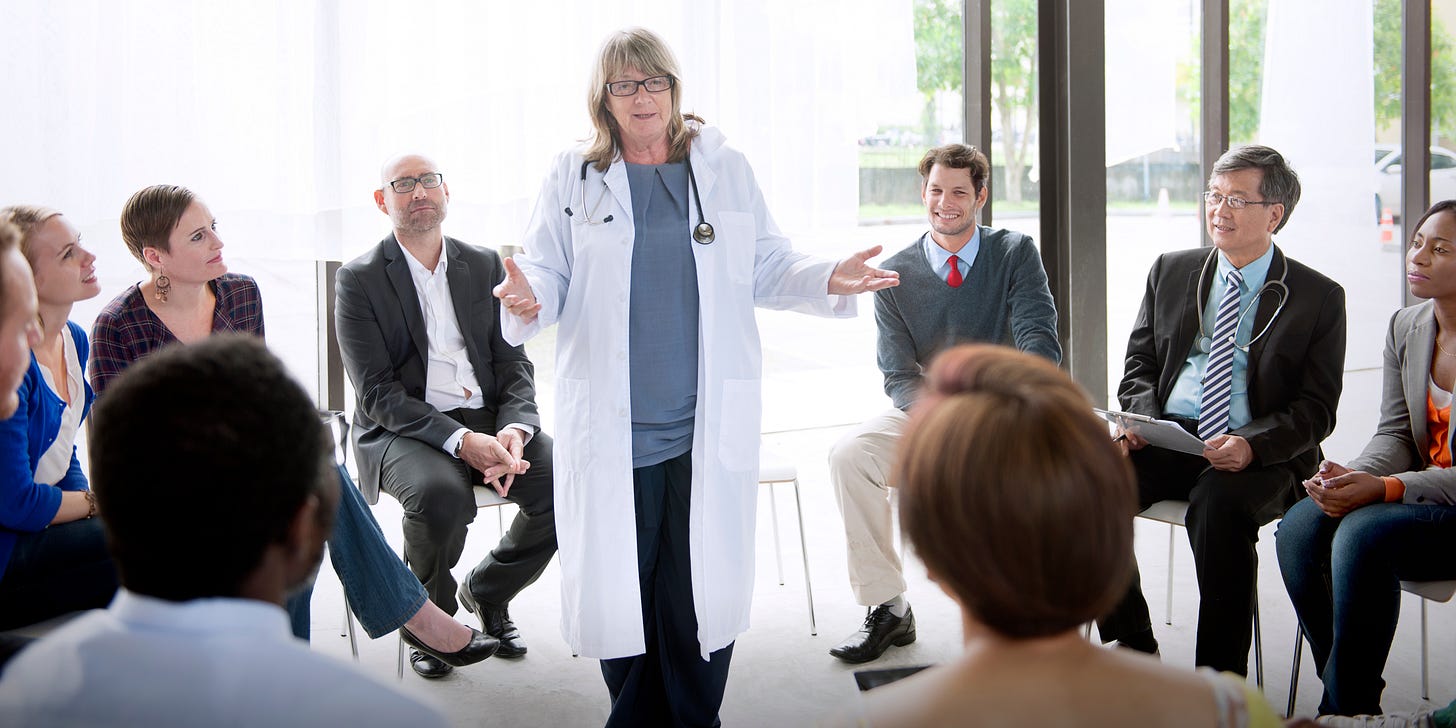Author: Bruce Morgenstern, MD
Purpose
To encourage clinical educators to identify and utilize the wide variety resources available through professional societies and introduce clinical educators to professional societies related to medical teaching, medicine and the arts, health humanities, medical professionalism, and bioethics.
Learning Objective
(1) Become familiar with professional societies related to medical teaching, medicine and the arts, health humanities, medical professionalism, and bioethics
Why are we including something you’re likely familiar with in the Medical Education 101 section. It’s simple, really; many of us want to learn, to teach, and to advocate for our colleagues and our patients. Specialty societies are a really good way to start.
To be clear, we’re talking any society that deals with your particular specialty, and in this construct, primary care fields are specialties. None of you will be surprised that there will be at least on society of like specialists in your fields. You may even be a member already. What you may not be aware of is the spectrum of efforts your society undertakes in support of your field. Only one way to learn about that: go to the society’s web page and look around. You may even start with an internet search, because there may be other related organizations about which you are unaware. Or, there may be a smaller state society.
We’d be remiss if we didn’t remind you that all organizations have local politics, and you will certainly encounter them as you get involved, but just remain vigilant and true to your goals (professional development, education, advocacy, etc.) and the efforts can be rewarding.
Below find some professional organizations that foster professional development in the areas of medical education, health humanities, professionalism, and clinical and research ethics. Let us know what your favorite professional society is in the comments section.
Academy for Professionalism in Health Care
“The mission of the Academy is to optimize patient care through professionalism education, scholarship, policy and practice in all health-related fields.”(1)
American Society for Bioethics & Humanities
“The Society is an educational organization whose purpose is to promote the exchange of ideas and foster multi-disciplinary, inter-disciplinary, and inter-professional scholarship, research, teaching, policy development, professional development, and collegiality among people engaged in all of the endeavors related to clinical and academic bioethics and the health-related humanities.”(2)
Health Humanities Consortium
“The Health Humanities Consortium promotes health humanities scholarship, education, and practices that focus on intersections among the humanities, arts and social sciences and health, illness, and healthcare.”(3)
International Association of Medical Science Educators
“IAMSE is a nonprofit professional development society organized and directed by health professions educators whose goals include promoting excellence and innovation in teaching, student assessment, program evaluation, instructional technology, human simulation, and learner-centered education.”(4)
National Organization for Arts in Health
“As the National Organization for Arts in Health, NOAH provides transformational leadership to bring the field of arts in health together, and to move the field forward. Our focus is on the future of arts, health, and wellbeing; and creating tangible impact from our goals and initiatives. We know through research and experience that the arts are an integral component to health, and we are committed to shaping a reality where that fact is accepted fully, and incorporated into medical treatment, medical education, prevention, and public health and wellbeing.”(5)
Western Group on Educational Affairs
“The Western Group on Educational Affairs (WGEA) is one of four regional groups of the AAMC Group on Educational Affairs (GEA). GEA membership is open to all faculty, faculty, staff, and learners involved in medical education. We strive to promote excellence in the continuum of medical education by fostering the professional development of medical educators and advancing research in medical education.”(6)■
References
(1) Academy for Professionalism in Health Care. Homepage. Accessed January 31, 2024. https://academy-professionalism.org/#gsc.tab=0
(2) American Society for Bioethics & Humanities. About the American Society for Bioethics & Humanities. Accessed January 31, 2024. https://asbh.org/about/american-society-bioethics-humanities
(3) Health Humanities Consortium. Homepage. Accessed January 31, 2024. https://healthhumanitiesconsortium.com/
(4) International Association of Medical Science Educators. Homepage. Accessed January 31, 2024. https://www.iamse.org/
(5) National Organization for Arts in Health. About NOAH. Accessed January 31, 2024. https://thenoah.net/about/
(6) Western Group on Educational Affairs. AAMC.org. Accessed January 31, 2024. https://www.aamc.org/career-development/affinity-groups/gea/wgea



